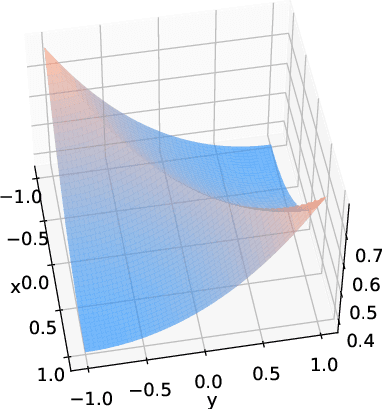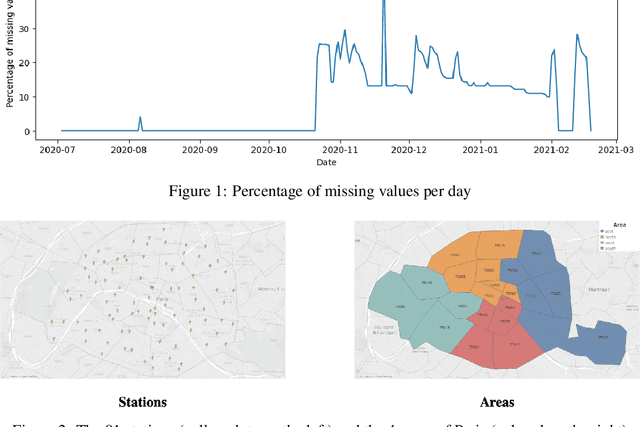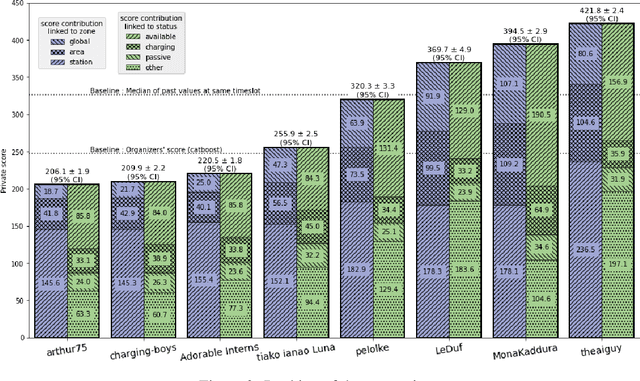Nathan Doumèche
LPSM, EDF R&D OSIRIS
Physics-informed machine learning as a kernel method
Feb 12, 2024


Abstract:Physics-informed machine learning combines the expressiveness of data-based approaches with the interpretability of physical models. In this context, we consider a general regression problem where the empirical risk is regularized by a partial differential equation that quantifies the physical inconsistency. We prove that for linear differential priors, the problem can be formulated as a kernel regression task. Taking advantage of kernel theory, we derive convergence rates for the minimizer of the regularized risk and show that it converges at least at the Sobolev minimax rate. However, faster rates can be achieved, depending on the physical error. This principle is illustrated with a one-dimensional example, supporting the claim that regularizing the empirical risk with physical information can be beneficial to the statistical performance of estimators.
Forecasting Electric Vehicle Charging Station Occupancy: Smarter Mobility Data Challenge
Jun 09, 2023



Abstract:The transport sector is a major contributor to greenhouse gas emissions in Europe. Shifting to electric vehicles (EVs) powered by a low-carbon energy mix would reduce carbon emissions. However, to support the development of electric mobility, a better understanding of EV charging behaviours and more accurate forecasting models are needed. To fill that gap, the Smarter Mobility Data Challenge has focused on the development of forecasting models to predict EV charging station occupancy. This challenge involved analysing a dataset of 91 charging stations across four geographical areas over seven months in 2020-2021. The forecasts were evaluated at three levels of aggregation (individual stations, areas and global) to capture the inherent hierarchical structure of the data. The results highlight the potential of hierarchical forecasting approaches to accurately predict EV charging station occupancy, providing valuable insights for energy providers and EV users alike. This open dataset addresses many real-world challenges associated with time series, such as missing values, non-stationarity and spatio-temporal correlations. Access to the dataset, code and benchmarks are available at https://gitlab.com/smarter-mobility-data-challenge/tutorials to foster future research.
 Add to Chrome
Add to Chrome Add to Firefox
Add to Firefox Add to Edge
Add to Edge